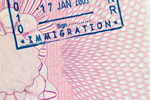Tips on buying overseas property for investment or retirement

Tips on buying overseas property for investment or retirement
However many different homes you’ve bought and sold in your home country, purchasing a home overseas brings up questions you’ve never had to ask before. Familiarising yourself with the reality of real estate in an unfamiliar country is necessary, as at best it can make the process easier and at worst it can protect you from making the mistake of a lifetime. Property ownership laws overseas can be dramatically different that those you’re used to, with falling in love with a vacation destination just the first move.
Firstly, regulations as regards foreign ownership of real estate differ from country to country, with some restricting or even disallowing foreign property purchases. Hiring a trustworthy lawyer specialising in real estate is essential, as is giving him power of attorney to act on your behalf. If you’re buying a house for investment or vacations, check visa regulations as to the number of days you must spend in the country and, if you’re planning to work or retire, consider applying for residency.
Hard cash is the best way to buy an overseas property, although expat mortgages are easier to get than in previous decades. Watch out for high interest rates and get smart as regards fluctuating currency exchange rates. If renting the property is planned, checking local laws and tax rules is a must, as locals may not like the competition you’re giving them.
Maintenance services are built in to many gated communities’ charges, but living in a location with an established expat community can help if you’re only planning short stays. One essential is a comprehensive home insurance policy bought locally. In some countries, the tax implications of second home ownership can be complicated to say the least, with a qualified local accountant the best way forward.
Another absolute essential for most overseas destination is adequate private healthcare insurance. It’s usual for expats to be able to join the national healthcare system, but to get first class emergency care you’ll need to pay. Costs vary across the world, as does the standard of healthcare provided. Watch out for articles describing a country’s healthcare as inexpensive and first class, as in some popular destinations it’s neither, with checking on local expatriate forums the best way to get to the truth.
Related Stories:
- Is Kuwaitization the unintended result of the oil price crash? - July 20, 2020
- Expats in Malaysia still banned from overseas travel - July 17, 2020
- HSBC Asia to cut back on internal expat relocations - July 16, 2020
- Tips on integrating for newly-arrived expats - July 15, 2020
Latest News:
- Tips on a trouble-free relocation as an expat overseas - July 20, 2020
- Expats find peace in the covid-19 refuge of Dahab town - July 20, 2020
- Is Kuwaitization the unintended result of the oil price crash? - July 20, 2020
- Expats unhappy abut changes to Korean points-based visa system - July 17, 2020
- Chiang Mai and Bangkok no longer bargain locations for expats - July 17, 2020
- Expats in Malaysia still banned from overseas travel - July 17, 2020
- Vietnam welcomes expats to its safe, affordable lifestyle - July 16, 2020
- Asian tiger economies reach out to expats in Hong Kong - July 16, 2020
- HSBC Asia to cut back on internal expat relocations - July 16, 2020
- Tips on integrating for newly-arrived expats - July 15, 2020


